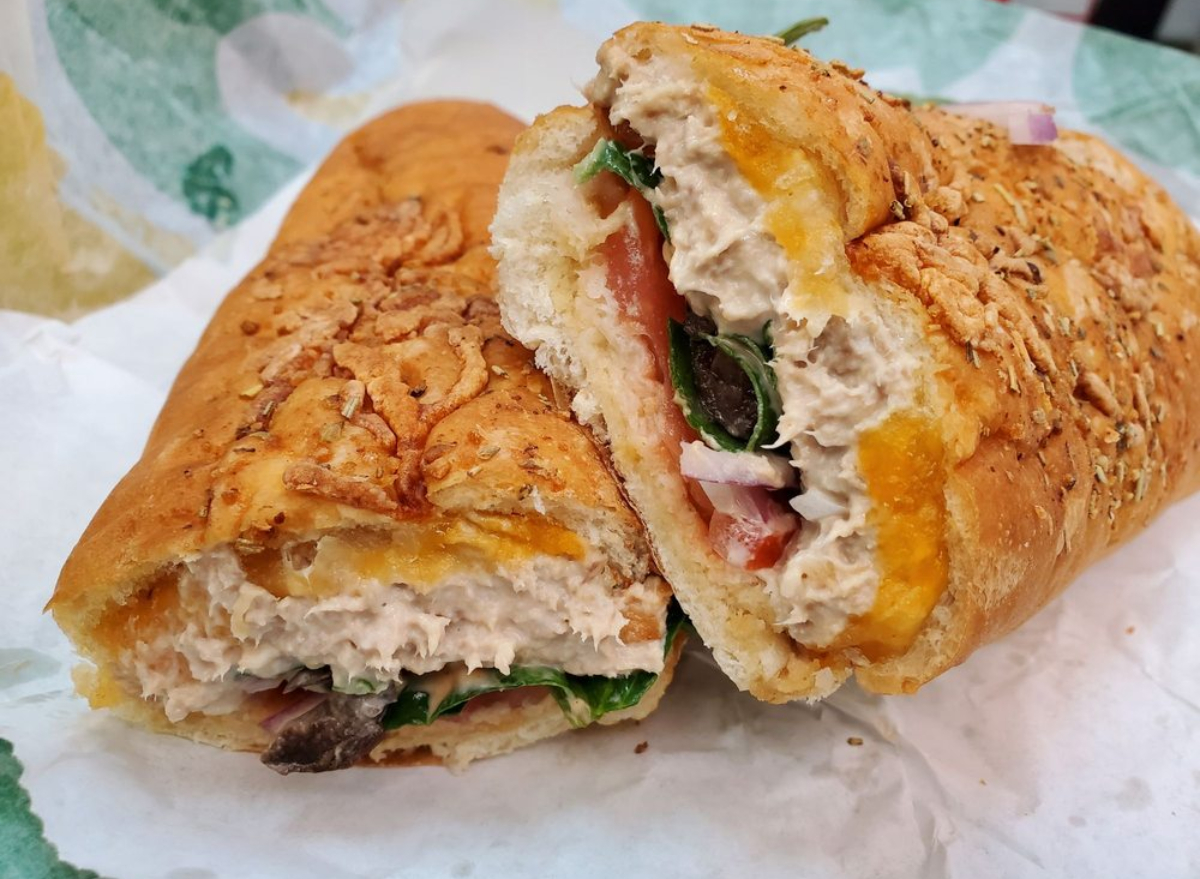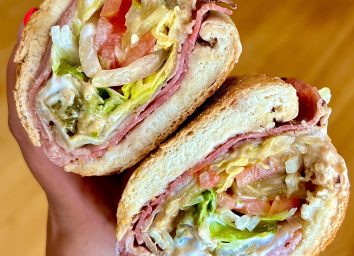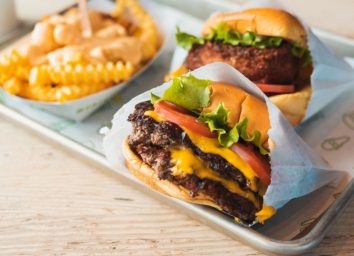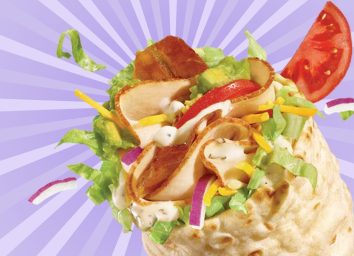9 Fast-Food Chains With Questionable Ingredients
Fast-food restaurants in America have long been thought of as serving mystery meat, unnatural flavorings, chemicals, and foods that don't naturally occur in nature (nuggets are not a natural cut of meat, FYI). In recent years, some pioneering chains have worked to change those perceptions by sourcing higher-quality ingredients, eschewing harmful antibiotics, and taking an approach towards simplicity and freshness.
That's all well and good, but not every fast-food chain is a Chipotle or a Panera Bread. In fact, many still have lax policies on antibiotics in meat, and some haven't even cleaned up their packaging of toxic chemicals.
For many fast-food restaurants, the question of quality hinges largely on the meat. Far more so than anything else, meat is the thing most likely to be laden with bad ingredients and/or sourced from industrial farms—not to mention the whole moral issue of animal welfare. When it comes to discerning which fast-food meat is up to snuff, a great resource is the Chain Reaction scorecard, a metric used by the U.S. Public Interest Research Groups (PIRG) to rate giant fast-food brands based on the antibiotic use in their beef, and scores them on a scale of A (e.g. Chipotle) to F (e.g. Burger King).
When deciding which fast-food restaurant to order from, you might want to steer clear of the ones linked to mysterious chemicals you can't even pronounce. Here's a look at nine fast-food chains with questionable quality ingredients.
Subway
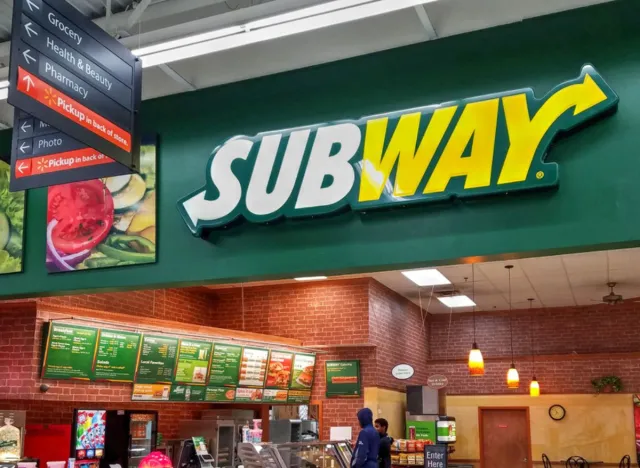
Subway is often thought of as a "healthier" option when it comes to fast food—due to the loads of veggies and protein you can pack in one footlong sandwich—but that may not be the reality. One of the most controversial and questionable ingredients at Subway is the tuna, which was been the main reason for a 2-year-long ongoing lawsuit. The brand has been accused of misrepresenting the protein as "100% tuna" because independent lab tests showed that it was not.
In addition to questionable inside ingredients, Subway has also had a history of being under fire for what its infamous bread is made out of. Back in 2016, Eater reports, Subway was one of six fast food chains to use the "Yoga Mat Chemical" in a recipe. To be clear, the "Yoga Mat Chemical" is a substance known as azodicarbonamide and is used as a foaming agent in certain plastic and vinyl products such as yoga mats. While the FDA does approve small or limited amounts of the chemical in food, it's been linked to asthma and cancer by the EPA.
McDonald's
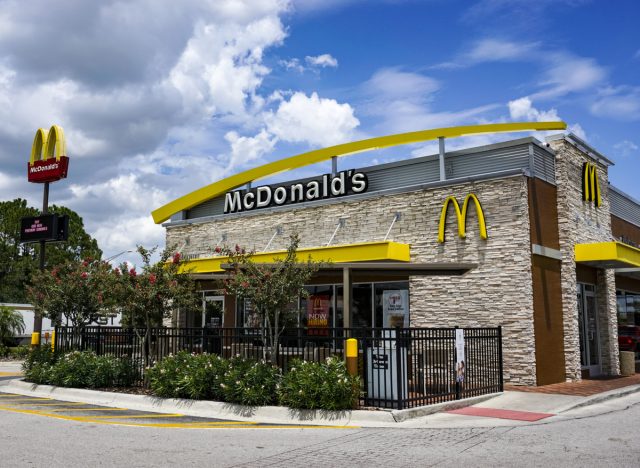
As the largest buyer of beef in America, and the de facto model for other fast-food businesses, McDonald's naturally operates under a giant magnifying glass. Sure, the company has made some strides to become healthier in recent years, but it seems like every step forward is also followed by a few steps back.
Not only has the chain come under scrutiny for its animal welfare practices (or lack thereof), but this is one brand that likes to use the term "natural flavor" in quotes, which is never a good sign. "Natural beef flavor," in particular, should trigger some red flags, especially when it's used in fries and hash browns, menu items that are supposed to be vegetarian.
And in case that wasn't enough, even the bags used to serve fries have been found to contain an alarmingly high level of organic fluorine, a kind of "forever chemical" that sticks around for a long time and can contaminate soil, water, and air.
McDonald's is also a culprit when it comes to phthalates, a chemical found in the chain's food, which has been linked to reproductive health problems, as well as asthma and cognitive development issues. That doesn't sound like a very happy meal at all.
Domino's
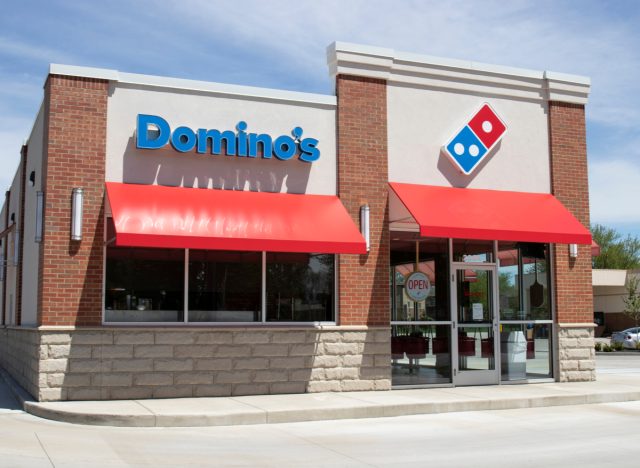
The pizza may not taste like cardboard anymore, but Domino's still isn't exactly a beacon of quality food either. The largest pizza chain in the world seems to prioritize speed over nutrition—a single slice of some of its pies will send you spiraling into a sodium coma.
Salt aside, the pizza chain's meat has also been found to contain excessive amounts of phthalates, which isn't all that surprising considering it has some of the worst quality beef in the fast-food biz by some measures.
Despite making the claim that it will "transition to pork and beef sourced from animals raised without the routine use of medically-important antibiotics… once a sufficient supply of such pork and beef is available in the U.S. market," Domino's is still using meat with antibiotics, and received an F grade in that department.
Taco Bell
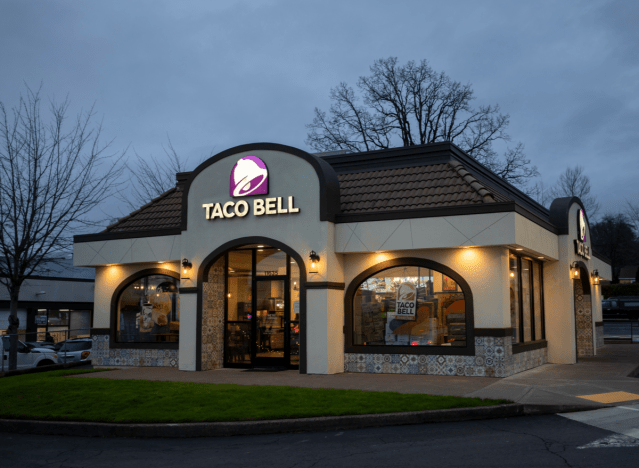
From hair gel-like beef and rehydrated ingredients to sourcing 100% cage-free eggs, Taco Bell goes back and forth on a seesaw of public perception, ranging between good effort and egregious omission.
The chain has a not-so-great track record of mystery meat, at one time claiming its beef is "mostly beef" (which doesn't seem like something to brag about). And while it has managed to set the record straight on using 100% USDA-inspected beef, there are still some question marks.
For example, its beef has been found to contain phthalates. And despite pledging to reduce the use of antibiotics in its meat by 2025, no public action has been taken toward that goal.
Burger King
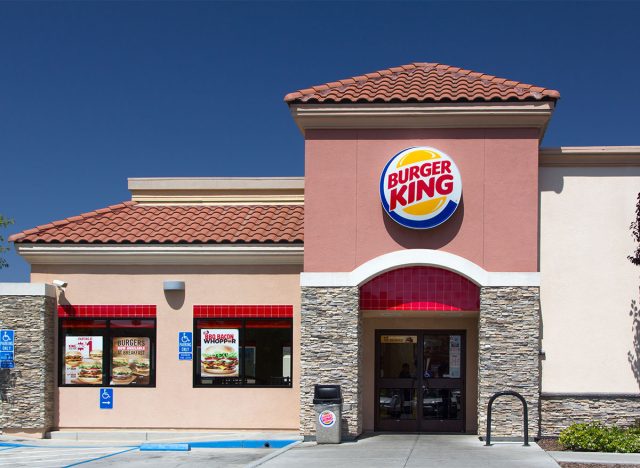
A little late to the party when it comes to spiffing up its food quality, Burger King didn't start banning artificial ingredients (including potentially harmful ones) until 2021.
Which might be too little too late when it comes to the all-important court of public opinion. An F rating on the Chain Reaction scorecard denoting lax antibiotic policies for its meat is definitely not a good look for a restaurant synonymous with burgers.
Pizza Hut
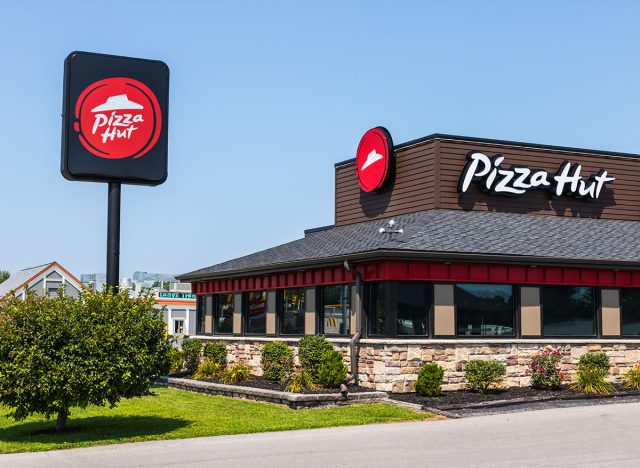
A few years ago, Pizza Hut probably wouldn't be on this list, considering the company's pledge to pivot to all-natural ingredients. But then it did the opposite and hopped off the all-natural bandwagon, quietly removing its healthier and cleaner menu options and reverting back to mystery ingredients and chemicals—this is yet another chain whose meat was found to contain phthalates.
Whereas once it seemed like Pizza Hut was poised to be a pioneer in food quality, the company now finds itself at the bottom of the barrel with an F on the Chain Reaction scorecard and some of the straight-up unhealthiest pizza you can order.
Arby's
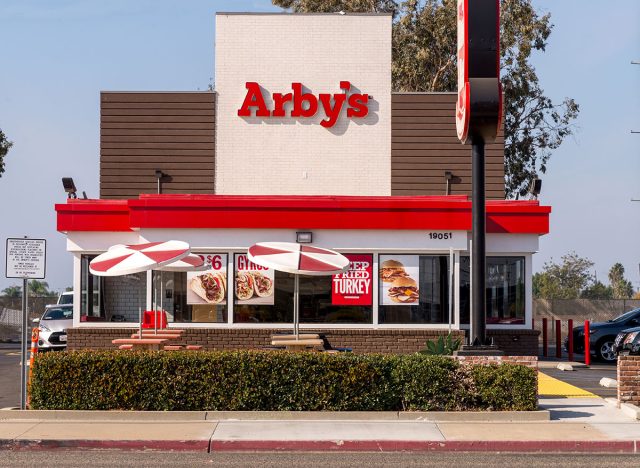
When your signature sandwich is found to be made with some of the sketchiest meat on the market, that's not a good sign.
Roast beef is to Arby's as Big Macs are to McDonald's, so the fact that a candid Arby's employee said it's something you should never order—considering it's apparently a compressed block of beef scraps left to sit under a heat lamp—is cause for concern.
If the idea of re-warmed beef scraps wasn't triggering enough, consider the fact that its meat also earned an F on the Chain Reaction scorecard. In fact, the company has no public antibiotics policy at all.
Dairy Queen
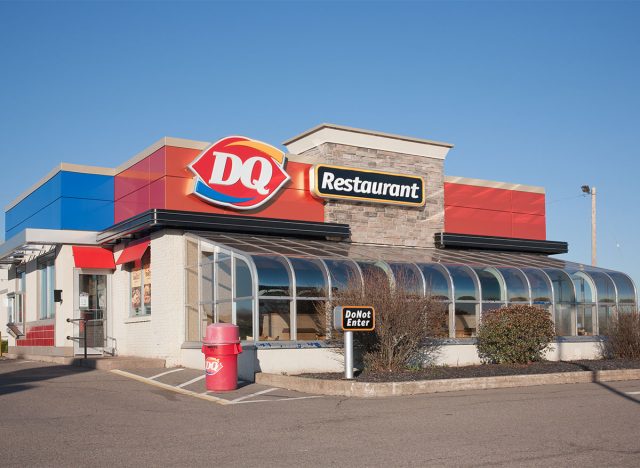
Dairy Queen's ice cream treats aren't technically really ice cream, which might sound terrifying. Don't worry too much, though: that's mostly just due to the fact that Dairy Queen doesn't use enough milkfat in its products to count, according to the Food and Drug Administration.
However, the list of what it does use in its "ice cream"—including corn syrup, mono and diglycerides, artificial flavor, guar gum, polysorbate 80, and carrageenan—isn't exactly reassuring.
But it isn't just the dairy that should cause concern. The chain, which also serves plenty of non-dessert items, apparently has a shady enough reputation for its food quality that a county coroner literally had to come out and debunk the rumor that Dairy Queen burgers were made with human flesh.
While the chain definitely isn't catering to cannibals, its beef burgers are laden with saturated fats and sodium, not to mention antibiotics.
KFC
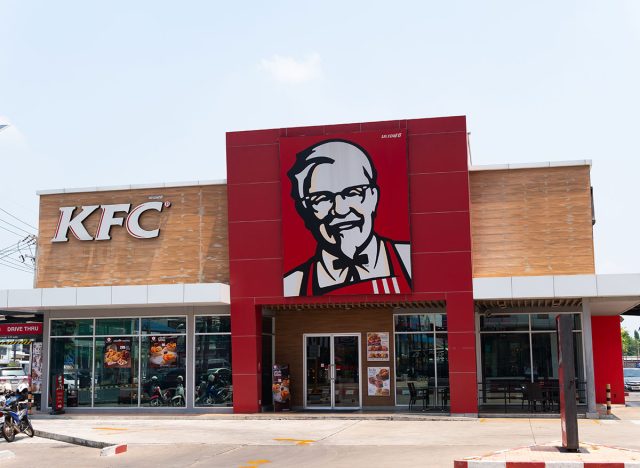
Turns out its blend of herbs and spices isn't the only thing KFC wants to keep secret. For example, its high-calorie chicken contains nearly half your recommended daily sodium intake in one breast. Even the dressings are a sodium overload, and the vegetarian Beyond Meat chicken is surprisingly unhealthy too!
Yes, committing to using antibiotic-free chicken was a step in the right direction, but info on its suppliers has long been famously murky, and its animal welfare practices have rightfully come under fire. In general, in spite of some positive changes, KFC is the prime example of a fast-food chain with an unhealthy and shady reputation that's hard to shake.
A version of this story was originally published on May 13, 2022. It has been updated to include new information.
